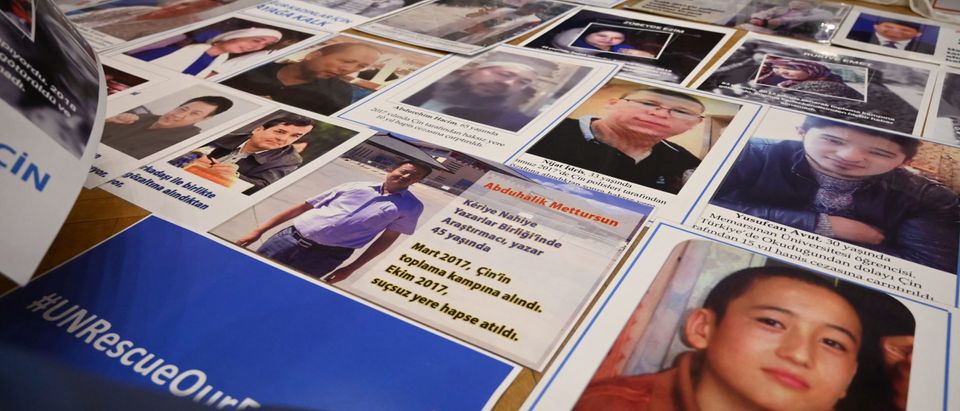Several Western electric vehicle (EV) manufacturers appear to have connections to a region of China known for slave labor, The Washington Post reported.
The EV supply chains of Ford, Volkswagen and Tesla all appear to have links to Xinjiang Province, China, where the Chinese Communist Party (CCP) allegedly has detained and effectively enslaved Uyghur Muslims, which the State Department described as “genocide” in 2021, according to the Post. While not all labor in the Xinjiang region is forced, the U.S. government banned “the importation of goods made with forced labor” from the region with the Uyghur Forced Labor Prevention Act, according to the bill’s text. (RELATED: ‘Massive Payday For China’: Biden’s Mining Strategy Is Undermining His Agenda And Helping China, Experts Say)
Former Police Officer Comes Out To Say China Is Detaining, Torturing Innocent Uyghurs In Interview https://t.co/I14jvNU3Mi
— Daily Caller (@DailyCaller) October 7, 2021
The Post analyzed numerous financial disclosures, social media posts, expert reports and news articles to assert that these companies and their supply chains may be more closely-linked to forced labor in Xinjiang than they have claimed publicly. Tesla appears to use Xinjiang-linked components in its supply chain, Volkswagen(VW) operates a factory in Xinjiang with a Chinese partner firm and Ford partners with CATL, a company which maintains business relations with Xinjiang Zhicun Lithium, the owner of several key lithium mines in the region.
“We don’t manufacture in Xinjiang or import goods from the region. We prohibit the use of forced labor, compulsory labor and slavery,” and the company “regularly [engages] with [its] suppliers to audit their facilities, to address any human rights concerns and to document the origin of [its] materials,” a Ford spokesperson told the Daily Caller News Foundation. The company has “confirmed that Xinjiang Zhicun is not in Ford’s supply chain,” according to the spokesperson.
Volkswagen defended its Xinjiang facility when it came under fire in the past, claiming in February that there is “no indication that workers are mistreated at the facility in the city of Urumqi, which is operated by a subsidiary of its joint venture with state-backed SAIC Motor Corp,” according to Bloomberg.
A February investor report from a Chinese research firm obtained by the Post cautions clients that if U.S. regulators became cognizant of how involved Xinjiang Zhicun Lithium is in the region, it could prompt authorities to seize products that may be associated with it, according to the Post.
Additionally, nodes in each of the companies’ complex supply chains, which include as many as 13,000 other companies, may have connections to forced labor in the region, according to the Post. These potential connections could exist in supply chains of aluminum and graphene, both of which are essential for building EVs.
The Post’s extensive and detailed investigation follows a December 2022 report by Sheffield Hallam University in the U.K., which found that “practically every major car brand has supply chain links to the abuses in the Uyghur region.”
“We knew that there was forced labor built into the whole program,” Kendyl Salcito, a co-author of the Sheffield Hallam report, told the Post. “But we didn’t know it would touch on so many commodities and parts. We hadn’t actually understood how horrific the spread of forced labor was in this sector.”
The Biden administration has promoted policies that subsidize EV production, and taken actions that would effectively reduce the production of internal combustion engine vehicles.
The White House, CATL, Tesla and Volkswagen all did not respond to the DCNF’s requests for comment. Xinjiang Zhicun Lithium could not be reached for comment.
All content created by the Daily Caller News Foundation, an independent and nonpartisan newswire service, is available without charge to any legitimate news publisher that can provide a large audience. All republished articles must include our logo, our reporter’s byline and their DCNF affiliation. For any questions about our guidelines or partnering with us, please contact licensing@dailycallernewsfoundation.org.


